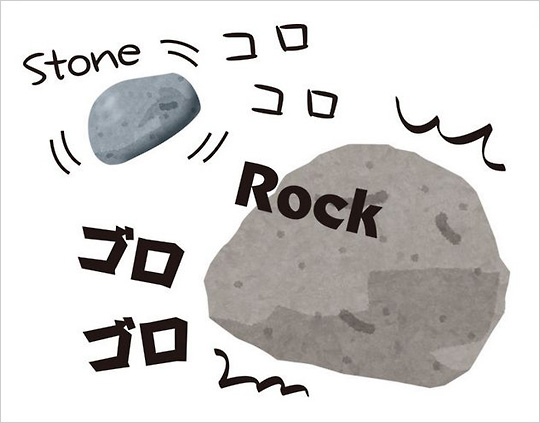How should we learn onomatopoeic and mimetic words?
Seen from the foreign students in Japan-Japanese social phenomena from a global perspective-
Updated on Sep 07 2015
Q.Japanese has a large variety of onomatopoeic and mimetic words. Moreover, the language has so many mimetic words that are expressed similarly ― like “gorori” and “gorogoro” ― that Japanese learners find it particularly difficult to master them. How should we learn onomatopoeic and mimetic words?
A.Onomatopoeic and mimetic words are systematically structured
The symbol [★] is called “hoshi” (星) in Japanese and “star” in English. In general, the way each word is pronounced to represent its particular meaning varies from language to language. This is because there is not always a specific link between the meaning and the sound of each word, as far as most languages are concerned. However, Japanese is one exception as it is abundant in both onomatopoeic words that imitate the actual sounds made by, or related to, their respective referents, including animals, and mimetic words that depict the features of phenomena. Japanese people think there is relevance between the meanings and sounds of those words. For example, Japanese use the mimetic words “korokoro” (コロコロ) and “gorogoro” (ゴロゴロ) to express the sounds of a rolling stone and a rolling rock, respectively. In this case, the unvoiced consonant [k] is used to refer to the stone’s lightness while the voiced consonant [g] represents the rock’s heaviness. Both onomatopoeic words have a [1-2-1-2] sound pitch, indicating the ongoing movement of each object. Similarly, there are a [1-2-t] modulating pattern of either “korot” (コロッ) or “gorot” (ゴロッ) to cite a single quick roll and a [1-2-n] pitch of either “koron” (コロン) or “goron” (ゴロン) to refer to a bouncing roll. Given the symmetrical presentation of the sound and meaning of each onomatopoeic or mimetic word, Japanese learners are advised to acquire such words systematically as a way of building up their vocabulary. I am sympathetic with those Japanese learners who find it particularly difficult to grasp them because their mother tongues have no equivalent. Don’t give up!


published in The Japan News on 7/9/2015
Nagahiro YOSHIDA
Research
Japanese linguistics
Papers
Honorifics in Eiga Monogatari(2024/02/25)
AOKI Hirofumi: <i>Nihongo Rekishitōgoron Josetsu</i> (An Introduction to Historical Syntax in Japanese)(2018/01/01)

